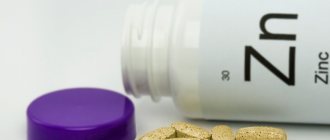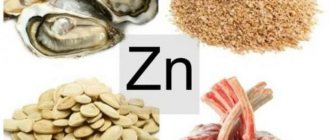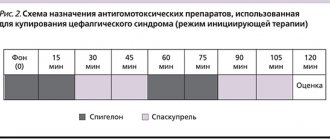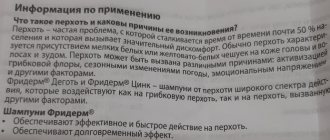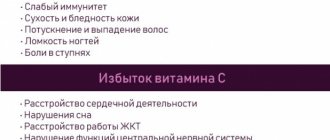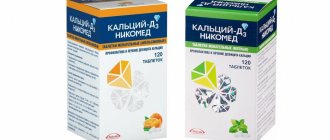Diet
The cold seasons have arrived and “uninvited guests” in the form of viruses, bacteria and microbes are here? The time has come to forget about complex and lengthy treatment. The immune system of the human body is constantly functioning, fending off pathological dangers. During the cold spell, when unfavorable weather conditions make you freeze, and indoor heating helps dry out the mucous membranes, human immunity is significantly reduced and becomes especially vulnerable. At this time, additional support is required, such as the use of zinc and vitamin C.
Some statistics
Every year in the Russian Federation, a large number of colds and flu are recorded. Diseases of this type are diagnosed in more than 25% of adults and 33% of the growing population. The risks of being included in the statistical report are quite high.
The intensity of development and ability to spread rhinoviruses is amazing: through smear and droplet infections, the disease easily spreads from one carrier to another. Once in the body, symptoms such as sore throat, cough and runny nose occur in just a day. Already at the stage of the first signs of the disease, a person can become a source of the disease and spread it to people nearby.
On average, a cold goes away in 7.5 days, but it can last longer (up to two weeks). Due to the widespread occurrence of colds, entire flu seasons occur.
Have questions about medications? Call and our consultants will answer! 8 (toll free)
There is salvation - the use of zinc and vitamin C
There is a category of people who are especially susceptible to colds, which is due to reduced immunity. In such a situation, a common cold can lead to serious consequences, including middle ear infections or even sinusitis (inflammation of the mucous membranes of the paranasal sinuses).
It is a known fact that the use of zinc in certain doses helps reduce the risk of developing colds, and if they occur, it facilitates the development process. Numerous studies have shown that the use of zinc is an effective method of preventing colds.
If you take zinc immediately after the first symptoms appear (within 24 hours), you can achieve the following results:
- shortening the period of illness;
- reducing the number of symptoms and the intensity of their manifestation.
To achieve the desired results, it is important to take the optimal compound and dosage of zinc (more than 75 mg).
Buy on the website:
General strengthening of the immune system
home
» Zinc 10+C
In Russia, about 50 million cases of infectious diseases are registered annually, of which up to 90% of cases are ARVI
A person’s ability to resist the influence of adverse factors, as well as infection, is called immunity. Each person has innate or nonspecific – genetically determined protection inherited from parents, as well as acquired (adaptive) immunity, which reflects the individual’s personal experience of contact with pathogens and the environment.
Immune defense plays an important role in our lives, because the frequency and severity of morbidity depends on its readiness to repel the attack of an infectious pathogen.
Infections of various kinds pose a serious threat to public health, as they cause systemic inflammatory processes that contribute to the development of severe pathology in various localizations, heart disease, vascular disease, dementia, the development of diabetes mellitus and stroke. In addition to infectious causes of immune dysfunction, they are often associated with a lack of synthesis of proteins, vitamins, and microelements in the body.
What to drink for immunity?
The body's resistance to infection depends on many factors, and it is important to know what can affect your health and what to avoid.
To support immunity, there are a number of vitamins and minerals that have well-studied effects. Immunity boosting vitamins and microelements are vital substances needed by our body to maintain many of its functions; their lack in the daily diet, combined with exposure to adverse environmental factors and stress, leads to a weakened immune system.
Most of them come from food, and only a few are synthesized in the body. The lack of these substances affects not only the functions of individual organs and systems, but also negatively affects mental and physical activity, general well-being, appearance, regeneration and growth processes, the body’s ability to withstand the destructive influence of various environmental factors, etc. If the intake of vitamins and minerals from food is insufficient, their inclusion is recommended for preventive and therapeutic purposes.
What vitamins strengthen the immune system?
Among vitamins for strengthening the immune system, the leading place is given to vitamin C.
Vitamin C (ascorbic acid) is the No. 1 remedy for the prevention and treatment of influenza and all kinds of colds. Vitamin C has a stimulating effect on the body, increasing its adaptation capabilities and resistance to infections, and regulates the rate of production of antibodies, which are necessary to fight infection. With a lack of vitamin C, immunity decreases and the risk of developing colds increases.
Vit. C is an active substance that increases the resistance of all body systems to infectious agents such as viruses, bacteria, as well as various diseases. An insufficient amount of it reduces the rate of antibody production, which leads to a weakening of the body's resistance to various diseases. Medicines containing vitamin C are often used to strengthen defenses during the period when many people suffer from colds (most often in autumn and winter). This biologically active substance makes it difficult for microbes to enter cells through cell membranes, which is associated with the stabilization of cell protein molecules.
(Zn) Zinc is one of the most powerful minerals; it has a powerful effect on the immune system, increasing the body’s protective activity, accompanies the production of T cells necessary to destroy bacteria and viruses, and protects the skin and mucous membranes from inflammatory processes. With a lack of zinc, lymphocytes are poorly synthesized, thereby reducing the body's defenses.
A decrease in our defenses is associated with both a Zn deficiency and a lack of vitamin C. Strengthening and increasing immunity can be achieved by combining zinc with vitamin C.
The combination of zinc and vitamin C has a stimulating effect on the body, increasing resistance to infections, and strengthens the immune system.
Additional source of zinc and vitamin C to strengthen immunity
To compensate for Zn deficiency, it is necessary to establish a work and rest schedule, a diet and culture, and a sleep schedule. But, unfortunately, with the modern rhythm of life and daily busyness, this does not always become realistically feasible.
Currently, there are known drugs and dietary supplements that generally strengthen the immune system.
Vitamins to boost immunity.
Zinc 10 C is a combination product – zinc with vitamin C. Vitamin C with zinc in the form of effervescent tablets has good bioavailability, and therefore is better absorbed into cells.
Compound:
Vitamin C - 120 mg Zinc - 10 mg
Release form:
effervescent tablets No. 20
Best before date:
3 years
The advantages of this tool are:
- Short course of admission - 2 weeks
- German quality
- Pleasant taste and convenient reception
- The product is dispensed without a doctor's prescription
Strengthening and restoring immunity
Frequent colds, prolonged fever, chronic fatigue, pain in muscles and joints, frequent headaches, sleep disturbances, skin rashes are signs of impaired immunity.
Our body is constantly exposed to environmental factors, including the action of foreign infectious agents. In the surrounding air there are many pathogenic microorganisms (viruses, bacteria, fungi) that constantly enter through the upper respiratory tract when breathing. But local factors of the protective system, located on the mucous membranes of the nasopharynx and oropharynx, destroy microbes, preventing the latter from entering the bloodstream.
As a rule, most of us think about strengthening and maintaining immunity only during a severe cold. Restoring immunity after a long illness requires attention, since the worse the immunity, the more often colds occur, which last a long time and with complications. It is especially important to stabilize the defenses after taking antibacterial drugs, which have a detrimental effect on resistance against free radicals.
Every year, especially in autumn and winter, colds and flu most often reduce immunity. As a rule, the first question among the working-age population is what to drink at the first sign of a cold? Most often, the choice falls on anti-inflammatory drugs containing non-steroidal anti-inflammatory drugs, which reduce temperature and pain, and increase overall protective properties. But this is not always enough. So what vitamins are best to use to boost immunity?
The use of drugs that contain Zn, and especially in combination with vitamin C, for example, zinc, vitamin C, significantly helps with colds, which has been proven by experts. Zn reduces the duration of colds and viral diseases by almost half.
It is quite difficult to restore immunity after a cold in a short time. As a rule, during this period there is a weak immune system in an adult, and what should be done? The body is weakened by infectious agents.
What vitamins should I take for immunity?
Immunity Zinc and Vitamin C
Zinc and vitamin C are components that naturally increase the body's resistance to infections and colds, especially in cases where unfavorable conditions (hypothermia, overheating, stressful situations) weaken the body's resistance.
Vitamin for strengthening and restoring immunity
The first drugs for colds, capable of stopping the inflammatory process in the first day and hours, as well as increasing our defenses, are most often complex drugs. Most of the population is aware of what vitamins for immunity are included in such preparations. This is undoubtedly vitamin C. However, not everyone knows that this compound works better in combination with a microelement such as Zn.
How to take zinc for colds?
Specialists have developed a special course of admission.
Immunity strengthening course
Taking Zinc 10+C is recommended as an additional source of Zinc and Vitamin C.
Adults: 1 tablet Zinc 10+C 1 time per day with meals (dissolve in 200 ml of water)
Duration of treatment: 2 weeks
Take note.
The following preventive measures actively help in the fight against influenza and ARVI:
- Moderate physical activity (walking, swimming, hiking in the fresh air) to speed up metabolism
- A healthy night's sleep of at least 6-8 hours
- A balanced diet with the obligatory inclusion of fresh vegetables and fruits, meat, dairy and seafood
- Drink plenty of fluids (water, fruit drinks)
- Frequent ventilation of premises, wet cleaning, hand washing
- Avoiding stressful and tense situations
- To prevent colds, remember that vitamin C and zinc complex strengthen the immune system.
- Protect your body. Carry out timely prevention! Be healthy!
How to take zinc?
Zinc is a special chemical element whose action helps prevent viruses from sticking to mucous membranes. To get the most positive effect from its use, it is important to know exactly how to use it.
Today, zinc is produced in various forms. To get the desired effect, it is best to give preference to tablets or lozenges. The drug should be taken with clean drinking water. Despite the unpleasant taste, this is the only correct solution, ensuring the possibility of a direct effect of the drug on the mucous membranes.
Reducing the risk of disease with vitamin C
The optimal level of vitamin C in the human body ensures stable and high-quality functioning of the immune system. When a pathological danger is detected, vitamin C activates protective processes, promoting the formation of white blood cells that neutralize and regenerate their own antioxidants.
The onset of a cold sharply reduces the level of vitamin C in the body, which is due to an increase in its consumption. For this reason, it is necessary to take a high dose in a timely manner, which will support the body’s defense system.
Consuming vitamin C in a dosage of 1000-2000 mg allows you to balance the functioning of the immune system, replenishing reserves lost in the process of fighting the disease. Taking the vitamin is required when the first signs of the disease appear, which will not only shorten its duration, but also ensure a reduction in the manifestation of its symptoms.
Instructions for use ZINCTERAL
When using zinc preparations, the risk of copper deficiency should be taken into account (when taking Zincteral for more than 3-4 months, additional prescription of copper preparations is advisable).
Long-term use of high doses of zinc can lead to secondary copper deficiency in the body. Symptoms of this condition include hypocuprimia, impaired iron mobilization, anemia, leukopenia, neutropenia, decreased superoxide dismutase (SOD) activity, particularly erythrocyte SOD, decreased ceruloplasmin levels, decreased cytochrome-C activity. oxidases, an increase in plasma cholesterol levels, an increase in the ratio of low-density lipoprotein cholesterol relative to high-density lipoprotein cholesterol, a decrease in glucose clearance, a decrease in the level of methionine and leucine enkephalin, impaired cardiac activity and the activity of pancreatic enzymes, amylase and lipase.
Eating a diet rich in phytin (eg bran), phosphates (eg dairy products), whole grain baked goods and phytates reduces zinc absorption due to complex formation. The break between consuming the above-mentioned products and taking zinc preparations should be at least 2 hours.
It is also assumed that excess zinc is an atherogenic factor. Continuous monitoring of zinc levels in the blood of patients receiving higher than usual doses of zinc is recommended.
Special patient groups
A study showed that zinc increases the content of glycosylated hemoglobin in diabetic patients.
In patients with impaired renal function, a dose reduction may be required.
Genetic changes
Zinc absorption may be increased in patients with hemochromatosis, indicating an increased risk of developing zinc-induced copper deficiency.
Carcinogenicity and genotoxicity
Positive results from in vitro and in vivo studies have been obtained showing that zinc is genotoxic. There is no data on the carcinogenicity of zinc.
Taking very high amounts of zinc, equivalent to 20 times the recommended daily dose, for six weeks caused an impaired immune response in a group of healthy adults. In addition, taking a dose of 80 to 150 mg daily for several weeks leads to a decrease in the level of high-density lipoprotein (the so-called “good” cholesterol).
In vivo (test tube) studies with zinc and human A-beta, a substance found in the brain and other tissues, suggested that zinc may play an important role in plaque formation in the brains of Alzheimer's patients. Based on this, it is necessary to take large doses of zinc with caution.
Evidence from animal studies
Taking very high doses of zinc can lead to neural degeneration, acinar cell necrosis and pancreatic metaplasia, and a decrease in hematocrit and white blood cell count. Very high doses of zinc have also been shown to cause reproductive toxicity in rats. Taking lower doses leads to a decrease in ceruloplasmin activity and hemoglobin levels.
Patients taking Zincteral should avoid drinking alcohol.
In case of gastrointestinal disorders, the drug should be used immediately before or during meals.
The drug contains the dye azorubine (E122), which can cause allergic reactions.
Caution is advised when used in children under 6 years of age who may have difficulty swallowing tablets.
The drug contains lactose, so it should not be used in patients with rare hereditary forms of galactose intolerance, Lapp lactase deficiency or glucose-galactose malabsorption syndrome.
Impact on the ability to drive vehicles and work with machines and mechanisms
The drug does not impair the ability to concentrate and does not affect the speed of psychomotor reactions.
